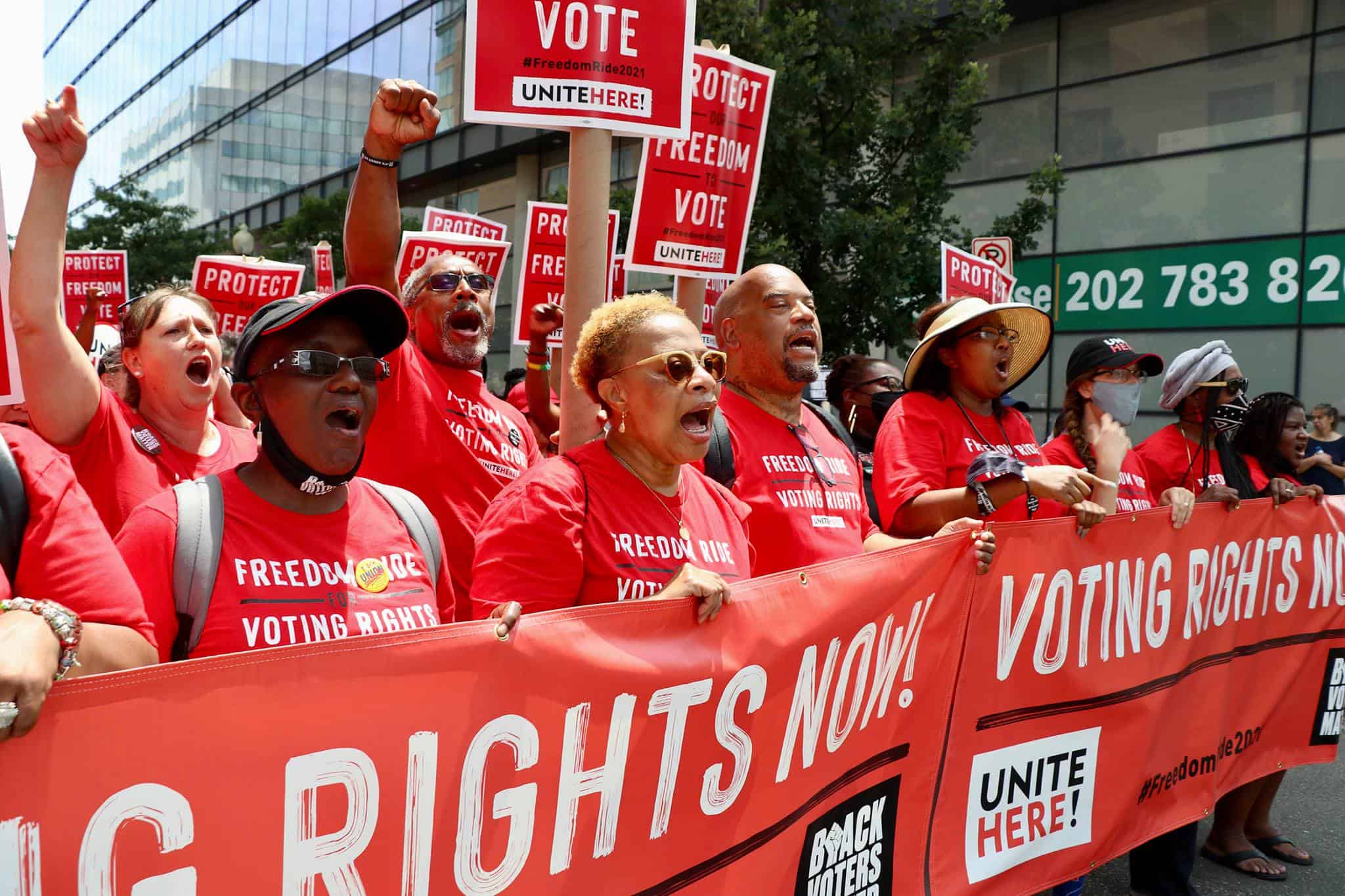Hannah Finnie is a writer in Washington, D.C. interested in the intersections of work and culture. She is a graduate of Harvard Law School.
News has come out that Current Affairs, a socialist magazine, fired all but one of its employees after it became clear the workers were moving towards transitioning the structure of the magazine to a worker co-op. The magazine, according to three of the fired workers, was in need of a more egalitarian and progressive structure, and its staff had been discussing the best way forward for a long time. After a vote on which path to move forward with was finally held, though, and it seemed like a worker co-op was going to be the victor, the editor-in-chief of Current Affairs fired the five employees. The magazine is currently on hiatus.
A new study analyzed the effects that 21 states ending pandemic unemployment assistance early had on the people who had been receiving the additional benefits by studying their banking data. The move wholly eliminated benefits for over 2 million workers and reduced benefits for another 1 million workers by $300 a week, according to the study. The study found that for every eight workers who lost their benefits, just one worker has found a new job since. The study also found that for every $1 of reduced benefits, spending fell by 52 cents whereas only 7 cents of new income was found. Overall, the authors of the study used this data to find that in the early-withdrawal states, spending fell by approximately $2 billion while earnings because of returning to work rose by just $270 million.
Finally, a new article analyzing how Michigan’s workers turned to unions during the pandemic revealed an increase in unionized workers, even despite the overall loss in jobs. Citing Bureau of Labor Statistics data, the article notes that 15.2% of Michigan’s wage and salaried workers were unionized in 2020, up from 13.6% in 2019. This contradicts the overall trend of declining union membership, though there are demographics and job sectors where this isn’t true (young workers, for instance, have increasing unionization rates). The article cites new interest in unionizing in health care settings that helped offset losses in the tourism industry, which has a decent amount of unionized workers.






Daily News & Commentary
Start your day with our roundup of the latest labor developments. See all
July 11
Regional director orders election without Board quorum; 9th Circuit pauses injunction on Executive Order; Driverless car legislation in Massachusetts
July 10
Wisconsin Supreme Court holds UW Health nurses are not covered by Wisconsin’s Labor Peace Act; a district judge denies the request to stay an injunction pending appeal; the NFLPA appeals an arbitration decision.
July 9
the Supreme Court allows Trump to proceed with mass firings; Secretary of Agriculture suggests Medicaid recipients replace deported migrant farmworkers; DHS ends TPS for Nicaragua and Honduras
July 8
In today’s news and commentary, Apple wins at the Fifth Circuit against the NLRB, Florida enacts a noncompete-friendly law, and complications with the No Tax on Tips in the Big Beautiful Bill. Apple won an appeal overturning a National Labor Relations Board (NLRB) decision that the company violated labor law by coercively questioning an employee […]
July 7
LA economy deals with fallout from ICE raids; a new appeal challenges the NCAA antitrust settlement; and the EPA places dissenting employees on leave.
July 6
Municipal workers in Philadelphia continue to strike; Zohran Mamdani collects union endorsements; UFCW grocery workers in California and Colorado reach tentative agreements.